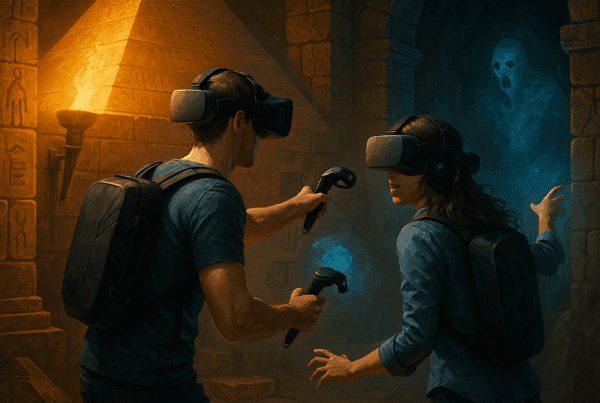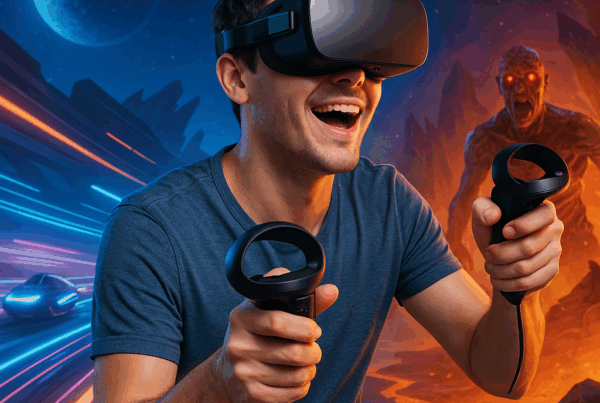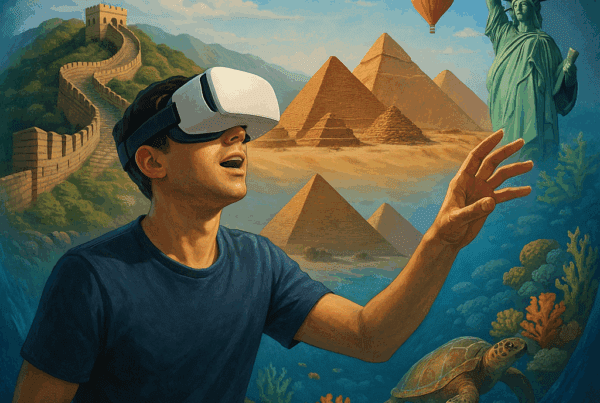Virtual Reality is no longer limited to video games and entertainment. More and more schools, universities, and training centers are adopting this technology as an innovative educational tool. By offering immersive experiences, VR is transforming the way we learn and retain information.
When the student becomes the actor
Instead of reading a chapter in a textbook or watching a video, VR allows students to live the lesson directly. Imagine a history class where learners explore a Roman city as if they were really there, or a biology course where they journey inside the human body. The student is no longer just learning—they are experiencing.
More effective learning
Research shows that immersion enhances memory and understanding. By stimulating sight, hearing, and movement at the same time, VR captures students’ attention far more than a traditional lesson. This makes learning interactive, engaging, and above all, long-lasting.
Diverse applications
- Sciences: simulating complex or dangerous experiments safely.
- Languages: immersing students in a foreign environment to practice in real-life conditions.
- Medicine: training for surgery or emergency interventions without risk to patients.
- History & Geography: traveling through time or exploring inaccessible locations.
Preparing for the future
With headsets becoming increasingly affordable and educational content constantly expanding, VR is gradually establishing itself as an essential tool in education. It prepares new generations to learn differently—through action, exploration, and curiosity.







